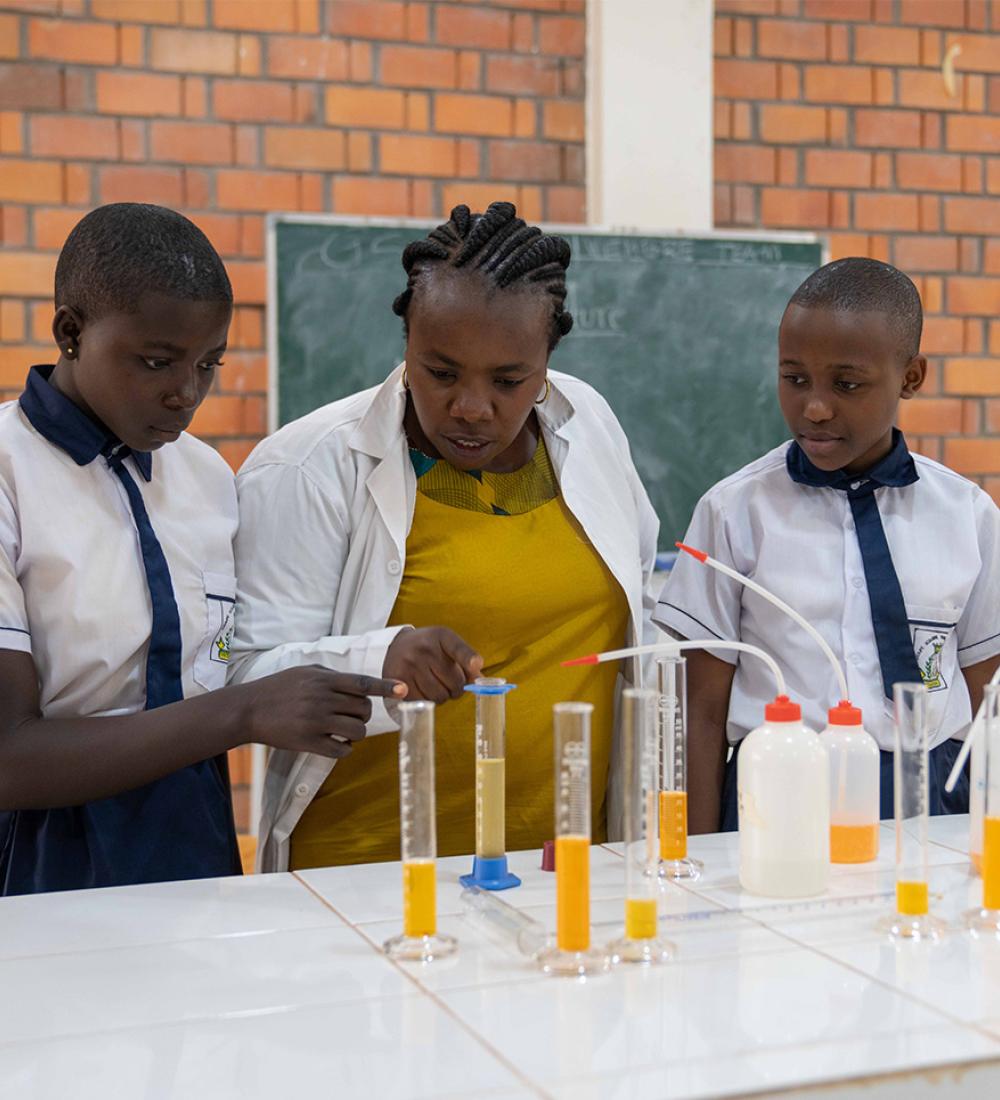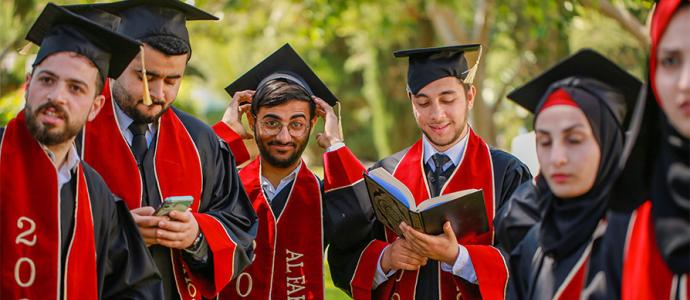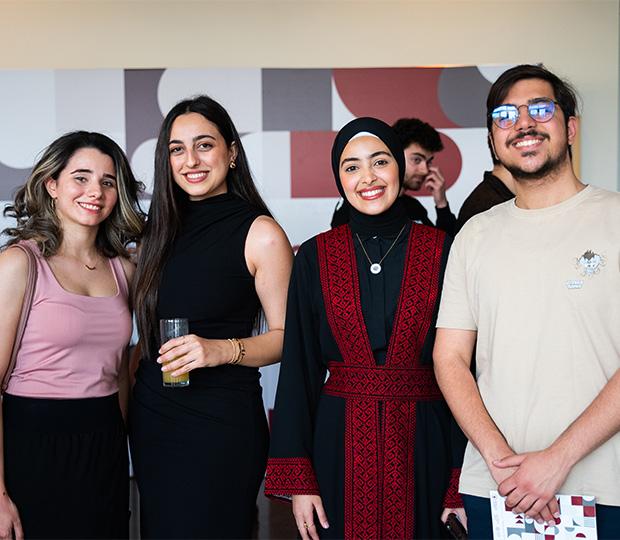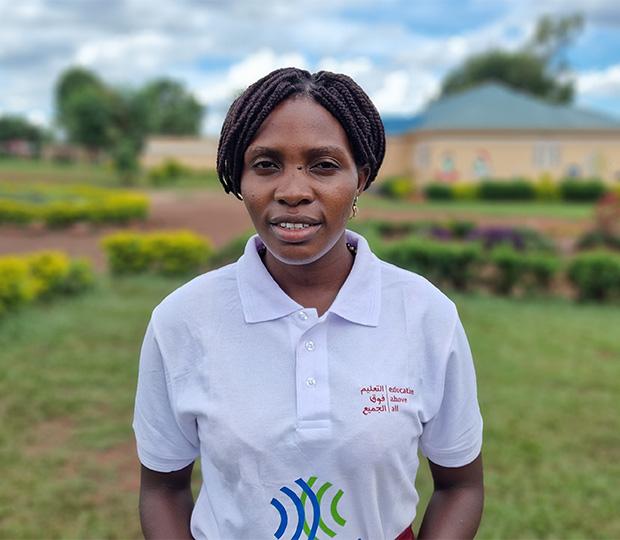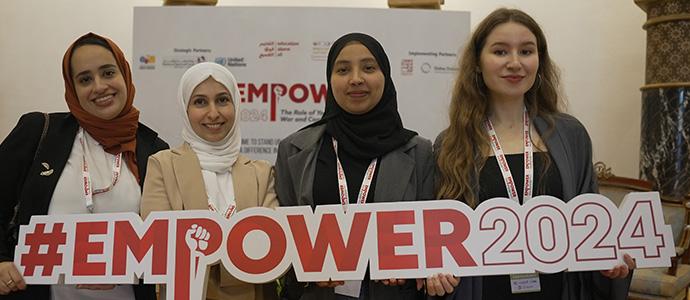Educate A Child in Bangladesh
While enrolment in the first grade is high, as many as half of those students fail to complete primary school; In 2010, the total number of children who dropped out of school, combined with the number of children who had never enrolled, was estimated at almost 8 million.
A major reason for this is poverty, which results in many children working to help their families. In some cases, the income the child generates provides a much-needed contribution to the overall income of the family; while not ideal, this immediate return makes the perceived delayed return on education difficult for struggling families to justify.
The Dhaka Ahsania Mission (DAM) is a Bangladeshi organisation that provides education and medical services to children and adults. Operating more than 1,900 learning centres in rural locations in 26 districts across the country, DAM recognises that some children will inevitably have to work for a living, and provides children with a non-formal education model that puts students through five grades of education in four years.
Tamanna is a 12-year-old girl who attends one of DAM’s schools.
“I come to school for three to four hours a day before going to help with housework or the textile orders from home. This is the only school I have ever been in; without it I would not have an education at all.”
Educate A Child (EAC) has partnered with DAM in Bangladesh, and has also established 1,000 new Children’s Learning Centers in the Noakhali, Laxmipur, Chittagong, Mymensingh, and Netrokona districts of Bangladesh.
The project will enrol 30,000 out-of school children in its first year and aims to enrol 40,000 by 2015.
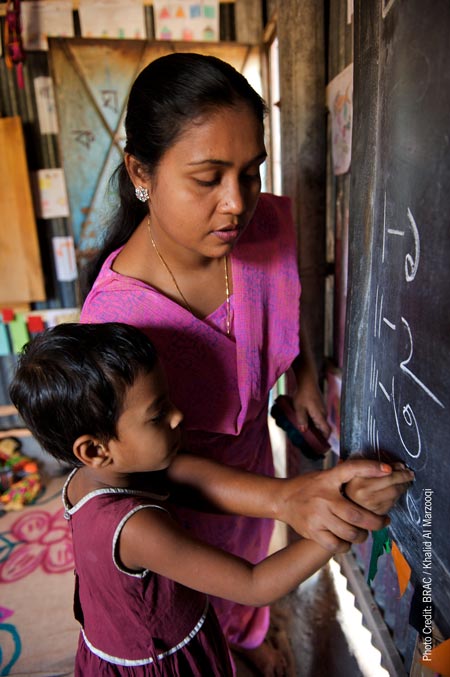 EAC also works closely with BRAC, a Bangladeshi development organisation dedicated to alleviating poverty by empowering the poor to bring about change in their own lives. BRAC offers free non-formal primary school education at a low cost, using a ‘one teacher, one school’ model.
EAC also works closely with BRAC, a Bangladeshi development organisation dedicated to alleviating poverty by empowering the poor to bring about change in their own lives. BRAC offers free non-formal primary school education at a low cost, using a ‘one teacher, one school’ model.
BRAC operates around 23,000 schools across 64 districts in Bangladesh and has enrolled 700,000 students, focusing its efforts on enrolling children not currently served by government primary schools or private schools, particularly those living in poor and marginalised families.
The Haor basin flood plain in the northeastern region of Sylhet is a permanent marshland. More than 40 per cent of the villages in Sylhet have no primary schools, and for six to seven months each year, large sections of the area are almost entirely covered by water, making it extremely difficult for children and teachers alike to reach schools.
BRAC operates ‘floating schools’ that serve a dual purpose – they act as a bus, collecting the children, and as a classroom, providing education. This solution is innovative and inspiring, as the children are excited to learn – an opportunity often denied to their parents. EAC and BRAC will enrol a total of 7,750 children over five years into primary schools on purpose-built boats in the Haor basin flood plain.
In addition, the partners will also enrol 31,000 out-of-school children in urban slums in and around the cities of Dhaka, Sylhet, Chittagong, Rajshahi, Khulna, Barisal, Rangpur, Jessore, Mymensingh, Comilla, Gazipur, and Narsingdi.
Together, the two projects seek to enrol 75,000 children by 2015. Since its launch in 2012, EAC has enrolled 58,750 children in schools in Bangladesh. Through existing and developing programmes, EAC’s commitment to the education of the nation’s children will only continue to grow.
Educate A Child builds on Sheikha Moza’s mandates as a UNESCO Special Envoy on Basic and Higher Education, a United Nations Millennium Development Goal Advocate, and a Steering Committee member of UN Secretary-General Ban Ki-moon’s Education First initiative.
With more than 60 million children worldwide still deprived of their fundamental right to education, the Educate A Child initiative has partnered with the world’s most expert organisations to bring high-quality learning to children affected by extreme poverty, conflict, natural disaster, prejudice, or any of the factors that can make them hard to reach by conventional means.
Upon launching EAC, Sheikha Moza said:
“Educate A Child will reignite the world’s commitment to the hardest-to reach children, the forgotten children. Our mission is to turn attention back to the disadvantaged children of today, who could become confident adults tomorrow, able to fulfil their potential, if we just give them the opportunity.”
That opportunity has been presented to children all over the world. Late last year, EAC and its partners announced that more than 2 million out-of-school children had been brought into education programmes in the first year of the programme, with a target of 10 million more by the end of 2015.
EAC projects reach countries that account for nearly 70 per cent of all out-of-school children. Its focus is on replicating and scaling-up successful, quality programmes, promoting innovative approaches, and encouraging collaboration to ensure the best outcomes for children and their communities.
Commenting on the need for increased resources for education, Her Highness said: “We need to tap into new sources of funding, from philanthropists to governments. We need all sectors to understand the importance of education, not only as a human right, but as an economic imperative. One additional year of schooling increasing a child’s potential future earnings by up to 10 per cent. So investing in education is an investment in the greatest resources – human resources.”








